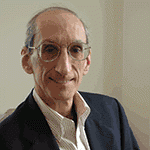Mel A. Topf

Areas of Expertise
Professional writing, including technical and legal writing; writing and political theory; state constitutional and legal history.Education
B.A. Long Island University M.A. New York University Ph.D. Pennsylvania State University
Dr. Topf teaches Critical Writing for the Professions and next year will begin teaching several courses for the new minor in Professional and Public Writing, including Technical Writing, Science Writing as Public Discourse, and Legal Writing as Public Discourse. In the past he has taught courses in the communications major, including Media Law and Ethics, and in the English major, including British and American literature. His publications include articles on technical writing, on the political philosopher Hannah Arendt, on legal communication, and on state constitutional and legal history. His book, A Doubtful and Perilous Experiment, was published by Oxford University Press in 2011. He was chair of the department from 2007 to 2013.
Course Offerings:
Critical Writing for the Professions
Technical Writing: This course helps prepare students to write effectively in industry, government and the professions. Technical writing is not merely transferring technical information but addresses often controversial, competitive, or uncertain situations where effective documents are crucial to accomplishing goals and resolving problems. Students will study key principles of rhetorical theory, the idea of genre and its purposes, and the concept of professional audience. Documents student will write may include feasibility studies, proposals and policy statements.
Legal Writing as Public Discourse: This course studies the role of writing in addressing public issues relating to law, and in resolving legal disputes. No legal background is required to take this course. Students will investigate how legal writing addresses legal issues that have become social, political and moral issues. The course will focus on two or three major disputes, at least one of which is still pending and unresolved during the semester.
Science Writing as Public Discourse: “Nowadays,” a New York Times article said, “it is widely agreed that science and engineering research is plagued by poor communication.” This course is about writing on science for a general discourse community concerned about the social, moral, and political issues relating to science but not expert in the sciences. No background in science is required. Students will explore the structure, rhetoric and effects of science writing as an important form of public discourse, and will look at the history and meaning of scientific method as the rhetorical basis for the authority that science has in the modern world.
